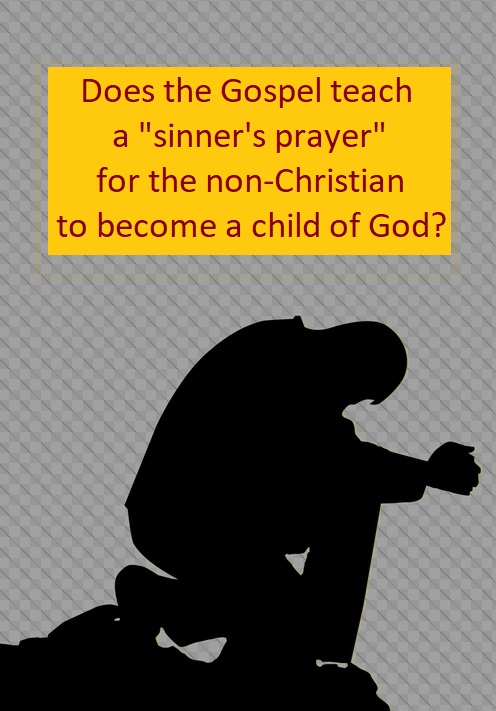“Go therefore and make disciples of all the nations…teaching them to observe all that I commanded you; and lo, I am with you always, even to the end of the age” (Matthew 28:19-20, NASB).
——————–
Contents:
1) Bible Prophecy (2) (Tom Edwards)
——————–

-1-
Bible Prophecy (2)
Tom Edwards
Last week, we began considering some Old Testament prophecies that were primarily of events that were to happen around the time of Jesus’ birth. Let us now continue with more on the foretelling of Him and His kingdom that was to come.
About seven centuries prior to the Lord’s coming to dwell among us, Isaiah was already informed by God (Isaiah 9:1-2) of the Galilean ministry that Jesus would later have: “But there will be no more gloom for her who was in anguish; in earlier times He treated the land of Zebulun and the land of Naphtali with contempt, but later on He shall make it glorious, by the way of the sea, on the other side of Jordan, Galilee of the Gentiles.
“The people who walk in darkness
Will see a great light;
Those who live in a dark land,
The light will shine on them.”
The fulfillment of this is recorded in Matthew 4:12-16: “Now when Jesus heard that John had been taken into custody, He withdrew into Galilee; and leaving Nazareth, He came and settled in Capernaum, which is by the sea, in the region of Zebulun and Naphtali. This was to fulfill what was spoken through Isaiah the prophet:
‘THE LAND OF ZEBULUN AND THE LAND OF NAPHTALI,
BY THE WAY OF THE SEA, BEYOND THE JORDAN, GALILEE OF THE GENTILES—
THE PEOPLE WHO WERE SITTING IN DARKNESS SAW A GREAT LIGHT,
AND THOSE WHO WERE SITTING IN THE LAND AND SHADOW OF DEATH,
UPON THEM A LIGHT DAWNED.’”
The passage then goes on to point out one of the things that the Lord started preaching at that time; and it was, “Repent, for the kingdom of heaven is at hand” (v. 17). John the Baptist was preaching this, too, as seen in Matthew 3:1-2.
Isaiah had also foretold of that kingdom (Isaiah 2:2-4), when referring to the future “last days,” in which
“The mountain of the house of the LORD
Will be established as the chief of the mountains,
And will be raised above the hills;
And all the nations will stream to it.
And many peoples will come and say,
‘Come, let us go up to the mountain of the LORD,
To the house of the God of Jacob;
That He may teach us concerning His ways
And that we may walk in His paths.’
For the law will go forth from Zion
And the word of the LORD from Jerusalem…”
The “mountain” represents God’s rule, His government. It is actually the primary meaning of “kingdom,” which is defined as “1) royal power, kingship, dominion, rule 1a) not to be confused with an actual kingdom but rather the right or authority to rule over a kingdom. 1b) of the royal power of Jesus as the triumphant Messiah. 1c) of the royal power and dignity conferred on Christians in the Messiah’s kingdom 2) a kingdom, the territory subject to the rule of a king. 3) used in the N.T. to refer to the reign of the Messiah” (Thayer).
So in seeking after the kingdom first, as the Lord has commanded (cf. Matt. 6:33), one is putting God before all else and submitting to His rule; and those who do so will then become a part of His kingdom, which is the church.
Notice in Isaiah’s prophecy that the LORD’S “mountain“ would be “the chief of the mountains,” which indicates God’s government, His rule, being far superior to any earthly rule that had ever been or ever would be. This is also inferred from the apostles who taught that we must obey the civil authorities (cf. Rom. 13:1-7; 1 Pet. 2:13-17), for it is what God commanded. Yet, they also knew where to draw the line when particular laws of civil governments or man-made rules would be in conflict with the word of God. It was then that Peter and the other apostles declared, “We must obey God rather than men” (Acts 5:29). Yes, God must always be first!
As Isaiah shows, on this “mountain” is “the house of the Lord”; for it would be established by Him. Perhaps this also reminds you of Jesus’ promise that “…upon this rock I will build My church; and the gates of Hades will not over power it” (Matt. 16:18). Similarly to Isaiah’s writing, the church is also called “the house of God” (1 Tim. 3:15 and 1 Pet. 4:17, KJV); and as “the house of the Lord” was on the “mountain” in Isaiah 2, the church today has Jesus for the foundation (1 Cor. 3:11). He, therefore, is the “rock” in Matthew 16:18 that the church would be built upon — that “rock” that Peter had just confessed, by saying, “You are the Christ, the Son of the living God” (Matt. 16:16); and it is by submitting to God’s rule that one today becomes a part of that church and is being built upon the foundation of Christ (cf. Matt. 7:24-27).
As we saw earlier, the Lord, while on earth, had informed some that they would “not taste death until they see the kingdom of God after it has come with power” (Mk. 9:1). It was then in Acts 2 when the kingdom came, for that term is used to also refer to the church. In writing to the Colossians, Paul says, “giving thanks to the Father, who has qualified us to share in the inheritance of the saints in Light. For He rescued us from the domain of darkness, and transferred us to the kingdom of His beloved Son” (Col. 1:12-13). The apostle John also testified toward being in the kingdom (Rev. 1:9) and told the seven churches in Asia Minor that God “has made us to be a kingdom” (v. 6).
So everyone who becomes a Christian is not only put into Christ (cf. Gal. 3:26-27) and into the universal church at that same time (cf. Acts 2:47, KJV), but also into the kingdom, since it is also used in referring to the church. For there are not two different plans of admittance – one for the church and another for God’s kingdom of the Gospel Age. Nor are there two different sets of laws of God for these; but, rather, it is the same gospel, the same rules of God, that are to be submitted to by, whether we say, those in the kingdom or those in the church.
We have also seen that when Christ returns, it is not to then set up a kingdom; but, instead, it is to deliver the kingdom, which has already been established, up to the Father in heaven (cf. 1 Cor. 15:24-26).
It was also prophesied about the Lord’s priesthood in Psalm 110:4. The psalmist writes,
“The LORD has sworn and will not change His mind,
‘You are a priest forever
According to the order of Melchizedek.’
The Lord’s priesthood is also foretold in Zechariah 6:12-13, in which the Lord had instructed Zechariah to declare,
“Thus says the LORD of hosts, ‘Behold, a man whose name is Branch, for He will branch out from where He is; and He will build the temple of the LORD. Yes, it is he who will build the temple of the LORD, and He who will bear the honor and sit and rule on His throne. Thus, He will be a priest on His throne, and the counsel of peace will be between the two offices.”
And where do we find the fulfiller of that spoken of? Hebrews 5:5-6: “So also Christ did not glorify Himself so as to become a high priest, but He who said to Him, ‘YOU ARE MY SON, TODAY I HAVE BEGOTTEN YOU’; just as He says also in another passage, ‘YOU ARE A PRIEST FOREVER ACCORDING TO THE ORDER OF MELCHIZEDEK.’” Consider also Hebrews 7:11-28.
So, again, we see Jesus being the One who would “build the temple of the LORD” and rule over it, as also seen in the prophecy in 2 Samuel 7:12-16, which had a dual fulfillment involving Solomon (in building the temple made with hands and ruling over God’s people) and ultimately with Jesus (who built the spiritual temple of God’s house, the church, and not only rules over it, but also over all else, as well, with the exception of the Father (cf. Acts 2:29-31; Matt. 28:18; Eph. 1:20-23).
(All Scripture from the New American Standard Bible, unless otherwise indicated.)
——————–
The Steps That Lead to Eternal Salvation
1) Hear the gospel, for that is how faith comes (Rom. 10:17; John 20:30,31).
2) Believe in the deity of Christ (John 8:24; John 3:18).
3) Repent of sins (Luke 13:5; Acts 17:30).
4) Confess faith in Christ (Rom. 10:9,10; Acts 8:36-38).
5) Be baptized in water for the remission of sins (Mark 16:16; Acts 2:38; 22:16; Rom. 6:3,4; Gal. 3:26,27; 1 Pet. 3:21).
6) Continue in the faith, living for the Lord; for, if not, salvation can be lost (Heb. 10:36-39; Rev. 2:10; 2 Pet. 2:20-22).
——————–
Tebeau Street
CHURCH OF CHRIST
1402 Tebeau Street, Waycross, GA 31501
Sunday services: 9:00 a.m. (Bible class); 10 a.m. & 5 p.m. (worship)
Wednesday: 7 p.m. (Bible class)
evangelist/editor: Tom Edwards (912) 281-9917
Tom@ThomasTEdwards.com
http://thomastedwards.com/go (Older version of Gospel Observer website without pictures, but back to March 1990)
http://tebeaustreetchurchofchrist.org/
http://ThomasTEdwards.com/audioser.html (audio sermons)


